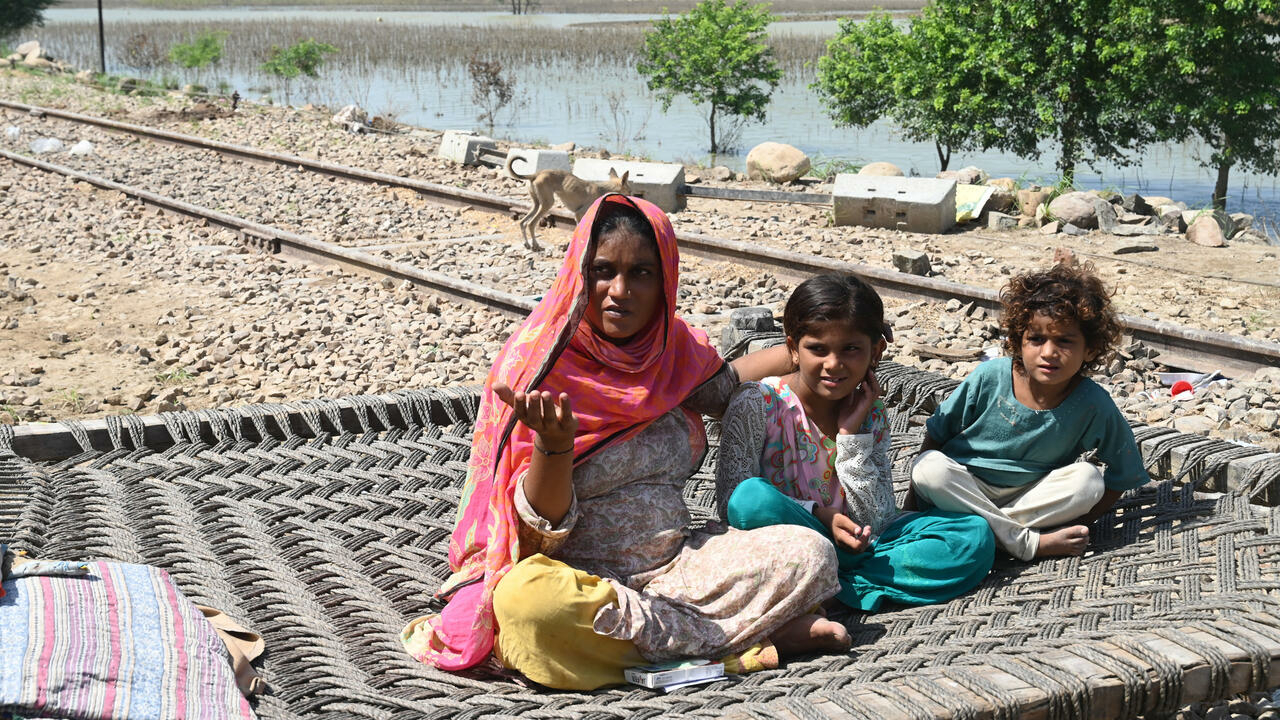
London, UK:
The speakers at the protest said that Pakistan was spreading a narrative that the extreme rains were caused by climate change but the fact is that it has not yet been scientifically established if it was due to climate change or an extreme weather event, local media reported.
Though Pakistan received maximum rainfall and severe flooding, but the actions of the Pakistani government against the Sindh people are genocidal and criminal negligence, the WSC speaker alleged.
The speaker went on to say that many International communities have extended help to Pakistan, but all that money will go to the army and those who are severely impacted continue to remain stranded and suffering, local media reported.
“Pakistan is using the tragedy to get hard-needed cash and requested the International Community not to help directly to the Pakistan government but directly monitor and deliver aid to the victims of the floods,” WSC alleged.
There were numerous ways to reduce the minimise the loss and damage due to floods but numerous reports and evidence suggest that the rain waters were collected and then let loose on towns and villages to bring 89 per cent of Sindh under water and impact more than 20 million people and more than 10 million homeless.
Post floods, Pakistan has received a lot of aid from the international community but the victims said that none is reaching the millions of stranded Sindhi people, in this hour of need, local media reported.
In view of this, WSC requested the International Community to set up a high-powered committee to investigate the role of the Pakistani government in converting the severe rains into a grave human tragedy for millions of Sindhi people and remaining completely detached from providing any meaningful help.
Pakistan has lost more than 1,000 people to floods, and about 33 million are displaced. Homes are inundated, roads and bridges swept away, and there are still many dead bodies that are missing. Sindh and Balochistan have suffered heavily, but Sindh is worse affected.
Media reports from the country said that anywhere in the flood-affected areas of Sindh, affectees have similar stories to share and at the core of complaints is the fact that the state has done nothing. Instead, it treats people like trash.
The condition of government camps is pathetic and people live in conditions that are worse even for animals to live. The rescue camps are filthy, with no water, washrooms, and health facilities, including the availability of doctors.
Many of them have developed skin diseases. There is malaria, diarrhoea, and many complain of throat pain. Even pregnant women do not have any facilities to keep themselves healthy and get medical help, local media reported.
Adding on to it, the treatment of the military and authorities for the flood affectees in these areas is worse as cases were reported where army officers slapped women and refused the distribution of rations to Shias and Hindus.
Experts said that the Sindh province of Pakistan witnessed erratic rains and weather conditions, which added to the plight of Hindus, who have already been facing adversity and severe institutional discrimination in Pakistan.
The flood victims have no other option but to manage survival without any help.






